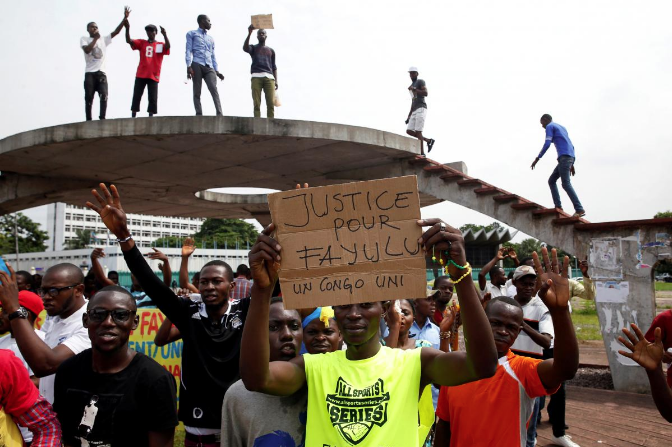Congo polling data backs up Catholic Church claims of fraud
The controversial Congo presidential vote that saw Felix Tshisekedi declared victorious was the subject of a massive voter fraud, according to data seen by the Financial Times.
The data backed up allegations by the country's powerful Catholic Church, which deployed thousands of monitors at polling stations and said Martin Fayulu was the clear winner.

The vote was set to be the first peaceful transfer of power since Joseph Kabila took over the country 18 years ago. But the unlikely result, and the fact that his own favoured successor, who came third, accepted the result without demur, led to fears that Kabila's supporters had struck a deal with Tshisekedi which would support Kabila's return to the presidency.
According to the FT, an analysis of a separate set of voting results collected manually by the Catholic Church's 40,000 observers and representing 43 per cent of turnout shows that Mr Fayulu secured 62.8 per cent of this sample of votes.
The FT has also seen a spreadsheet with more than 49,000 records from electronic voting machines taken from the electoral commission's central databse, which tallied almost perfectly with the Church's results.
The electoral commission denied its results were fraudulent. Fayulu is appealing its declaration in favour of Tshisekedi and a judgment is expected on Friday.
Meanwhile the Southern African Development Community (SADC) has called an emergency meeting on Thursday in Addis Ababa to discuss the election.
SADC, which includes Congo allies such as South Africa and Angola, on Sunday called for a recount. South Africa and Zambia backtracked on Monday, although Zambia reiterated its call for a government of national unity.
Tshisekedi's Union for Democracy and Social Progress (UDPS) also plans to file a challenge on Tuesday to the results of the legislative election, which took place the same day as the presidential vote, UDPS spokesman Vidiye Tshimanga said.
Although the presidential candidate of Kabila's ruling coalition, Emmanuel Ramazani Shadary, won only 24 per cent of the vote, the coalition took more than 350 of 500 seats in the National Assembly, compared with about 30 for the UDPS.
That could undermine Tshisekedi's ability to live up to campaign promises to break with Kabila's long tenure, which began in 2001 when his father was assassinated.
Fayulu alleges that Tshisekedi's win was the result of a backroom deal between Tshisekedi and Kabila that will let Kabila maintain control over important ministries and the security services.
Tshisekedi and Kabila deny there was any deal.
Additional reporting by Reuters.











